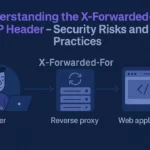Intro
Hi everyone!
This edition covers some crucial cybersecurity topics. Check Point Research has revealed a sophisticated malware distribution network, Stargazers Ghost Network, using GitHub for phishing repositories. Additionally, a malicious Python package targeting macOS developers to steal Google Cloud Platform credentials was uncovered, emphasizing the need for vigilance in software dependencies.
We’re also exploring security tools and challenges. Shuffle, an open-source security automation platform, offers valuable features for security professionals. You will also find the Prompt Airlines AI Security Challenge from Wiz which is a fun way to test your skills. In the materials, I also attached an article about Kafka UI vulnerabilities. Lastly, an Audit of Homebrew was included that reveals potential security issues in the popular MacOS package manager, reminding us of the importance of securing package management ecosystems.
Enjoy the materials and stay secure!
Materials
📃 Stargazers Ghost Network
What threat has Check Point Research identified on GitHub regarding malware distribution by a network known as Stargazers Ghost Network? This article covers the complex operation of the network, the tactics used to distribute malware via phishing repositories on GitHub, the group behind it – Stargazer Goblin, financial aspects, tactics to maintain operations, and the roles of various accounts within the network. The audience would be cybersecurity professionals, researchers, and individuals interested in cybersecurity threats.
📃 Malicious Python Package Targets macOS Developers To Access Their GCP Accounts
Why should macOS developers be concerned about a malicious Python package targeting their GCP accounts? A recent investigation by the Checkmarx Security Research Team revealed that the Python package “lr utils lib” contained hidden malicious code. This code targets macOS systems, attempting to steal Google Cloud Platform credentials. The attack involves specific hashes targeting macOS machines, exfiltrating sensitive data to a remote server.
🛠️ Shuffle Automation – Open Source Security Automation Platform
What is Shuffle, the security automation platform? Shuffle is an open-source automation platform designed for security professionals. It offers community support, training, and documentation. Users can self-host or use the cloud version. Key features include workflow editor, app creation with OpenAPI, and resource sharing.
🎓 Secure Guardrails – Semgrep Academy Free Course
What security professionals might benefit from learning about secure guardrails and how to create them proactively? The course explores the importance of secure guardrails in scaling security, shifting left, and provides guidance to ensure developers stay on the secure path.
📃 Prompt Airlines AI Security Challenge
What is the Prompt Airlines AI Security Challenge? The challenge involves manipulating a chatbot to win a fictitious airline ticket. Participants can be listed on the leaderboard.
📃 3 ways to get Remote Code Execution in Kafka UI
What are the different ways Remote Code Execution (RCE) can be achieved in Kafka UI? This article explores critical vulnerabilities in Kafka UI, explaining RCE via Groovy script execution and RCE via JMX connector. It details how attackers can exploit these vulnerabilities and provides insights on their discovery and patching. This information is important for developers and administrators using Kafka UI.
📃 Anyone can Access Deleted and Private Repository Data on GitHub
Discover the danger of deleted GitHub data: Who can access sensitive information from deleted and private repositories on GitHub? This article reveals how anyone can access data from deleted forks, deleted repositories, and even private repositories on GitHub, presenting a new vulnerability known as Cross Fork Object Reference (CFOR). Users must be cautious about the permanence of data accessibility on GitHub, even after deletion.
📃 Our audit of Homebrew
How did the audit of Homebrew by Trail of Bits reveal potential security issues?
Trail of Bits audited Homebrew, a package manager for macOS and Linux, identifying issues that could allow code execution and compromise of integrity. The audit focused on the Homebrew CLI and CI CD workflows, uncovering vulnerabilities like sandbox escapes and network resource inclusion in builds. Overall, the audit highlighted the complexities of managing third-party code in local package management ecosystems like Homebrew. The findings suggest the need for further security improvements to protect downstream software ecosystems.





